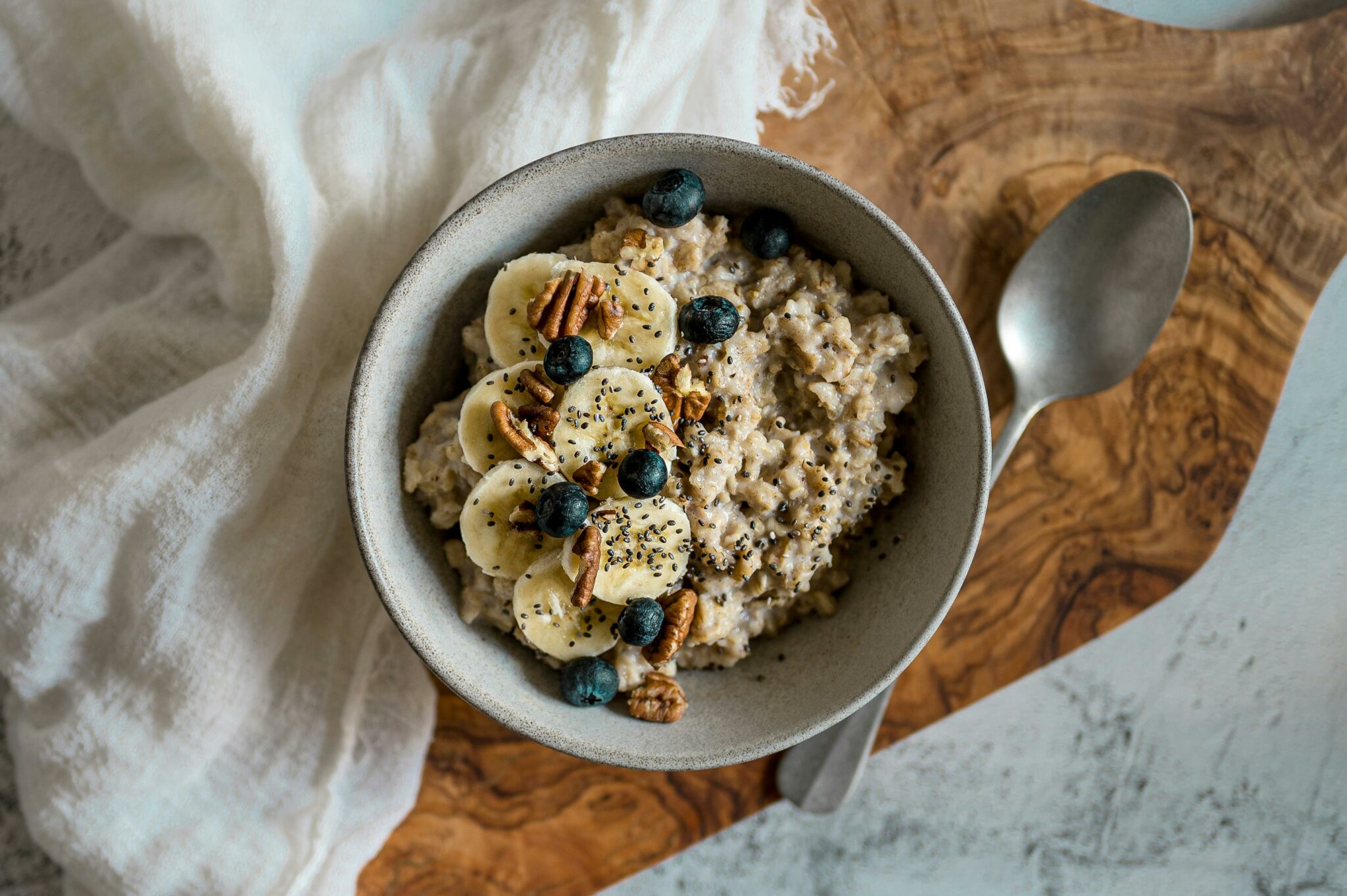
Oat meal and IBS
Is oatmeal good for ibs? Eating oatmeal has many positive effects on our body. For instance, it has been observed that oats strengthen the gut. A new study shows that certain fibers in oats, called beta-glucans, are particularly effective in keeping the intestinal lining tight and resilient.
Oatmeal is not only climate-smart and affordable, but it is also really healthy and beneficial for those of us with IBS. Remember to choose regular oats, not the fiber-enriched ones that often contain wheat bran. Oats are a type of soluble fiber, which means that when they come into contact with water, they form a gel. This creates a bulking effect on the stool while also making it softer.
Download the Belly Balance app
In the Belly Balance app, you can log symptoms, keep a food diary, scan products, find FODMAP lists, and much more to help you manage your IBS.
The beta-glucans in oatmeal affect the barrier function
People with IBD (such as Crohn’s disease or ulcerative colitis) often experience a dysfunction in the gut barrier, making it more permeable. Researchers have now found that the beta-glucans in oats have the ability to affect the gut barrier and make it less permeable. This is beneficial for everyone. Additionally, beta-glucans have other advantages:
- Lowering cholesterol
- Preventing colon cancer
- Increasing satiety
- Reducing blood sugar levels
Resistant starch
Oats also contain resistant starch, a type of starch that isn’t broken down in the small intestine but instead reaches the large intestine intact. There, gut bacteria break it down and, in return, produce butyrate. Butyrate is both anti-inflammatory and helps maintain the health of the gut barrier, which benefits everyone. Recently, a study was published showing that those who consume a lot of fiber tend to live longer.
So if you’re wondering about the combination of oatmeal and IBS, we say: go for it—oatmeal is a perfect breakfast for those of us with IBS!
Sofia Antonsson
Reg. Dietitian, Belly Balance
Read more about

IBS - What is it?
Bloated , constipated or having a gassy stomach? IBS or Irritable Bowel Syndrome is a functional gastrointestinal disorder, meaning no physical issues can be found in the stomach or intestines; they just don’t function quite as they should.

How the app works
Download the app and become part of our community. We assist you in achieving a calm and happy stomach through treatment and tools available directly in the app.

About FODMAP
By learning which foods upset your stomach, you can make conscious choices and get quick symptom relief. With the low FODMAP diet, you receive structured assistance in understanding which foods your body tolerates better than others. No more guessing and pondering – you get the answer straight away!

